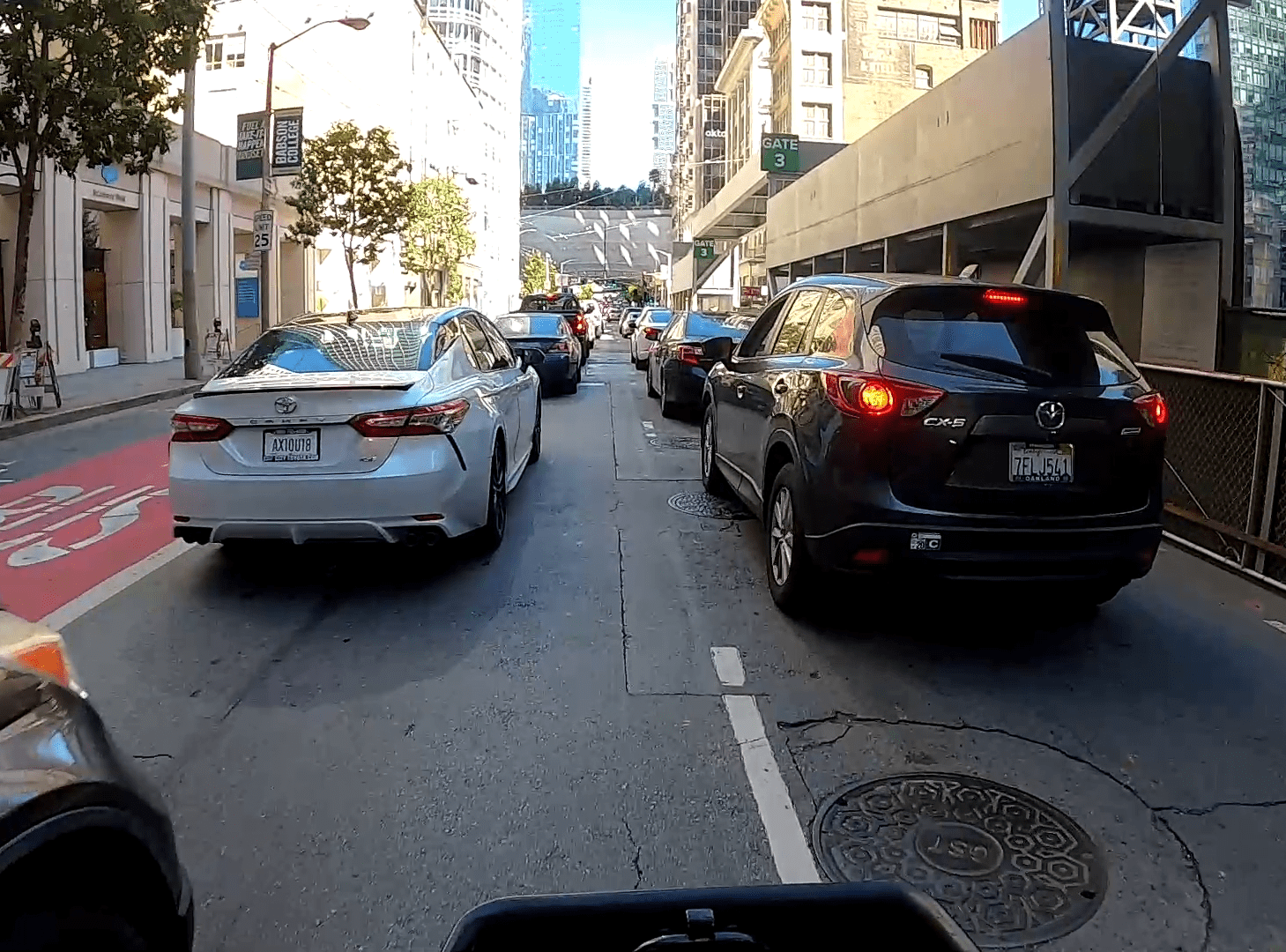An unknown number of U.S. drivers who have lost their licenses in one state are being allowed to keep them another, thanks to a little-known bureaucratic loophole, a new documentary reveals.
In the short-form documentary Blind Spot and accompanying written coverage, a team of investigative journalists at the Boston Globe explored the heartbreaking stories of a family who lost three loved ones — and one man who lost the use of a limb — to collisions with drivers whose licenses had been revoked for heinous crimes like excessive speeding and driving under the influence of alcohol or drugs.
But because those drivers either 1) lived in, or 2) committed traffic crimes in states that decline to participate in the Interstate Driver's License Compact, they were allowed to easily re-apply for licenses and legally return to the road, where they quickly claimed the lives of other road users.
One of the killer drivers profiled in the documentary, Timothy Vandervere, had his Illinois-issued license revoked by Wisconsin police following a long string of convictions for dangerous driving in the neighboring state — but because Wisconsin opted not to communicate the news to the Illinois department of motor vehicles, the Land of Lincoln allowed him to renew his license multiple times before he killed three members of the Rizzo family while traveling 100 miles per hour with a blood alcohol level four times the legal limit.
The other driver, commercial truck driver Volodymyr Zhukovskyy, had been cited three times in less than two months in both Texas and Connecticut for driving under the influence of drugs like Fentanyl — but he stayed behind the wheel because his license was issued in Massachusetts, which does not participate in the record-sharing agreement. He killed seven motorcyclists in a New Hampshire crash shortly thereafter.
But Vandervere and Zhukovskyy are certainly not the only dangerous drivers who the bureaucratic loophole have allowed to become killers. The Globe identified seven other victims of dangerous drivers who stayed on the road despite out-of-state license revocations, and noted that "there are unquestionably many more, but restrictive state rules on access to driver data make compiling a true tally almost impossible." In addition to Wisconsin and Massachusetts, departments of transportation in Georgia, Michigan and Tennessee have also chosen not to communicate with other states — and no federal law compels them to do so.
It's not clear why those five states elected to endanger its (and other states') road users, but some of the documentary's interviewees inferred it was a matter of money, bureaucratic inefficiency, and lack of federal oversight.
"We do not have a federally mandated or resourced system for states to exchange information about problem drivers," said Stephanie Pollack, secretary and CEO of the Massachusetts Department of Transportation, which is spearheading an effort to make the state's drivers' records more accurate. "I don’t know about legally, but morally, yes — I feel responsible for the motorcyclists who were killed in New Hampshire [by Zhukovskyy.]"
But even states that do participate in the national compact may not have accurate records of their drivers' dangerous past behavior.
The Globe's investigation found that 13 states and the District of Columbia have accumulated dangerous backlogs of unrecorded out-of-state offenses, notices of which are usually delivered using the struggling U.S. postal service rather than over email or other forms of secure digital communication, and then input manually. Seven states in the interstate compact, including California, Arizona, New Hampshire, and Rhode Island, have attempted to save time by simply not sending notices about infractions committed by drivers from outside the state — though they do accept notices of infractions committed by their drivers in other states, and can technically still claim participation in the compact.
And then there's the perennial issue of the stark differences between states' motor vehicle laws, which can result in even more incomplete records for dangerous drivers. If a driver from St. Louis, Mo., for instance, gets a citation for using her cell phone while driving across the river in the unrelated city of East St. Louis, Ill., it will be recorded on her Illinois state driving record — but not on her Missouri record, because her home state has no law against handheld cellphones for drivers.
Add it all up, and as many as one in 10 drivers may have been cited for a dangerous driving offense that isn't listed on their official records in their home states, the Globe estimates.
Still, advocates are hopeful that these ridiculous loopholes could be closed with strong federal standards — at least for the most dangerous drivers.
"If your license was taken from you in one state, it should be taken from you in every state," said Jim Moran, a former member of Congress from Virginia who attempted to pass federal licensing reforms during his time in office. "There shouldn’t be a loophole. You should be held accountable for your actions."
The Globe promises to give supporters of reform more data on the problem in a follow-up story soon, which will focus on the unique impacts of the Interstate Drivers License Compact's failures on the commercial trucking industry.






